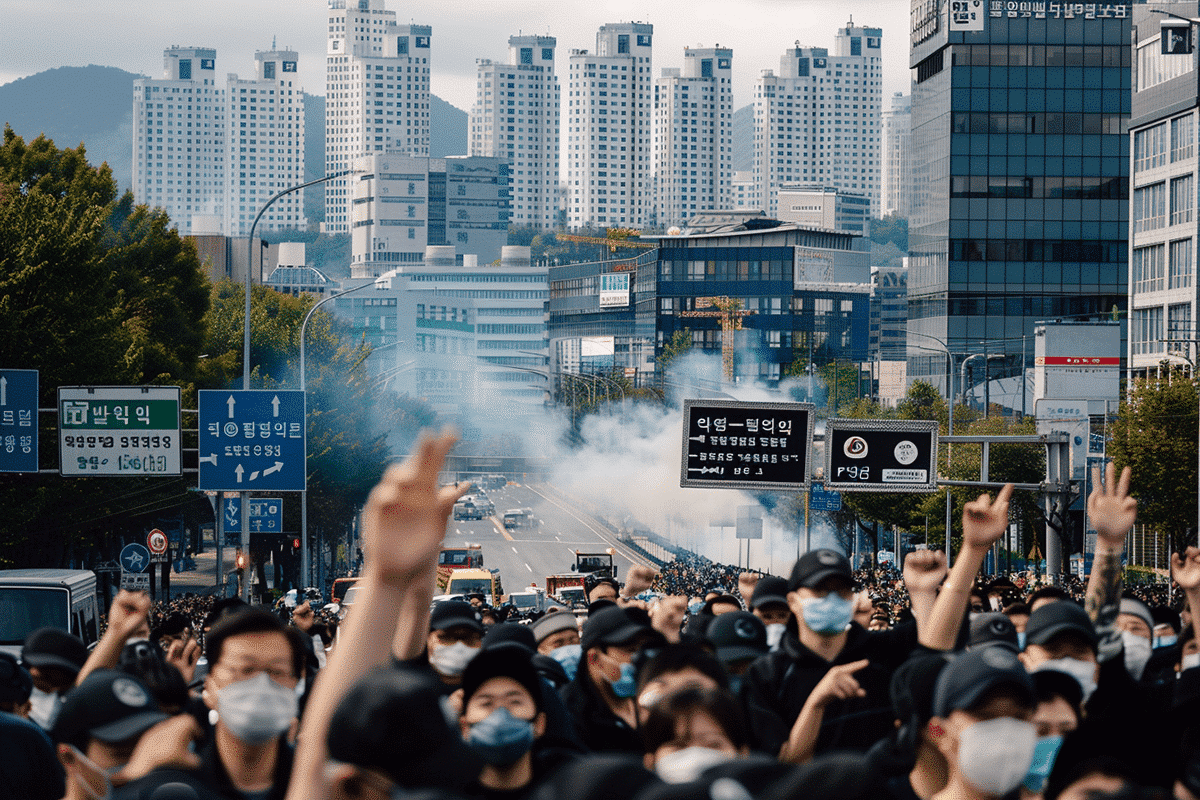Samsung Electronics, South Korea’s tech giant, is facing its first-ever strike as negotiations over pay and bonuses have reached a stalemate. The Nationwide Samsung Electronics Union (NSEU), representing approximately 28,000 workers, has announced a one-day strike scheduled for June 7. This walkout marks a significant escalation in the ongoing dispute between the company and its labor force.
The NSEU, which accounts for nearly a quarter of Samsung’s total workforce in the country, has cited failed negotiations regarding pay and bonus arrangements as the primary reason for the strike. The union asserts that it can no longer tolerate what it perceives as a lack of willingness on the company’s part to engage in meaningful dialogue.
The demand from the union includes transparent and fair performance bonuses along with wage increases. Son Woomok, a union leader, emphasized the absence of proper wage negotiations in the past, indicating that outcomes were typically announced without the union’s involvement. The union insists on a more inclusive approach to negotiations, advocating for the rights and interests of Samsung’s workers.
In response to the impending strike, Samsung expressed its commitment to engaging in good faith negotiations with the union. The company emphasized its sincere efforts to reach an agreement, signaling a willingness to address the concerns raised by the NSEU.
Samsung’s decision to call for a strike comes at a challenging time for the tech giant. In recent years, the company has faced various hurdles, including a historic shortage of computer chips exacerbated by the Covid-19 pandemic. Additionally, declining demand for smartphones amid global economic uncertainty has contributed to Samsung’s weakened performance. The company reported its weakest annual operating profit in 2023 since 2009, losing its position as the top smartphone maker globally.
However, amidst these challenges, Samsung remains optimistic about its future prospects, particularly in light of the growing demand for artificial intelligence (AI) technology. The company anticipates a resurgence in demand for mobile devices, driven in part by the rollout of new products such as AI-powered smartphones. Samsung’s first-quarter operating profit saw a significant increase, reflecting strong demand for AI and high-end chips, areas in which it competes with industry giants like Intel and Taiwan’s TSMC.
The microchip industry, crucial to Samsung’s operations, is dominated by just two regions: Taiwan and South Korea. While Taiwan’s industry holds a larger market share, South Korea is eager to challenge this dominance. With its advanced technology and strategic investments, Samsung aims to strengthen its position in the global microchip market, positioning itself as a key player in the AI revolution.
As the June 7 strike approaches, both Samsung and the NSEU remain entrenched in their positions. The outcome of the strike will not only impact the immediate negotiations between the company and its workers but also shed light on the broader labor dynamics within South Korea’s tech industry. As Samsung navigates through these challenges, its ability to address the concerns of its workforce while maintaining its competitive edge in the global market will be closely scrutinized.




